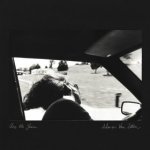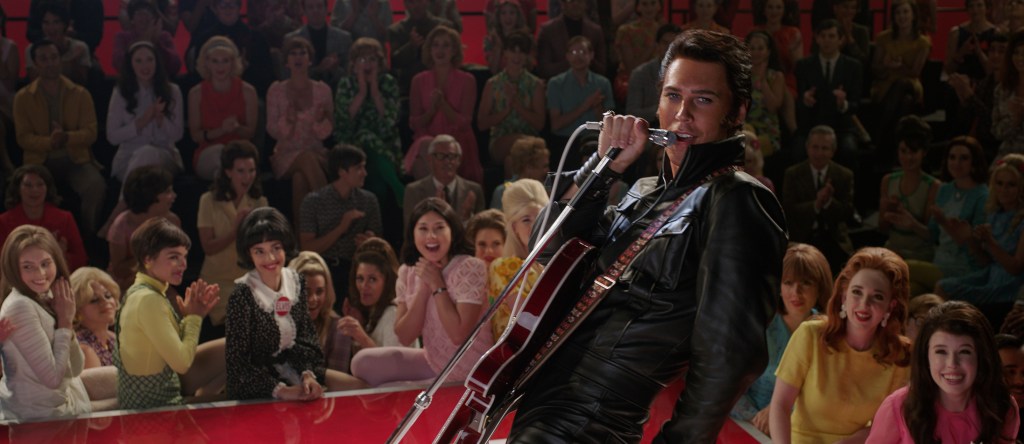
In this latest installment of my seemingly never-ending countdown of my 100 favorite albums from the 2010s, we look back at a Chicago rapper not named Kanye who seemed destined to take over the world, a resurrected British death metal band defibrillating our hearts, a singer/songwriter who taught us just how beautiful sadness could be, and more!

45. Sharon Van Etten – Are We There (2014)
Some voices were meant to convey ache. Like Roy Orbison. Or Hank Williams. Or Sharon Van Etten. The Brooklyn transplant warranted comparisons to such hallowed figures on her fourth album, a hypnotic collection of songs about need, and all the stupid and callous ways that others fail at fulfilling it. “I need you to be afraid of nothing,” she sings on the record’s first song, her voice leaping into a yodel on that second word like an eagle peeking above the cloud line. On a record with a three-word title that contains multitudes (Do we exist? Have we reached those goals that we set? Is this the end?, etc.) the production is appropriately reserved-yet-bottomless, a mix of chiming Americana and muffled electronics that sounds like Raising Sand getting lost on a foggy night. It’s the perfect milieu for Van Etten to sing like she’s holding nothing back. Like Roy, she can sing with the kind of quaver that reveals whatever beauty there is to see in the rawest grief. It’s a voice that can bemoan “your love is killing me,” and at the same time be absolute proof that life is good.

44. Chance The Rapper – Acid Rap (2013)
Smoking cigarettes doesn’t quite have the cultural cache that it used to – these days, kids need an especially potent sense of mischief, rebellion and self-loathing to get hooked. It’s this precise emotional cocktail that fueled Chance The Rapper on Acid Rap, where he gives the performance that first launched him to stardom – and one he’s yet to match. Chance already had a fully formed persona here, a laughing-and-pointing playground pest whose vulnerability is clearly visible between all the “nyeah nyeah, nyeah-nyeah-nyeahs.” He littered his verses with a mischievous, nasal quack, which logic dictates should be annoying, but ends up being essential to the experience. “Cigarettes, oh cigarettes/My mama think I stink/I got burn holes in my hoodies/All my homies think it’s dank,” Chance sings over the trembling church organ of “Cocoa Butter Kisses,” making fun of himself while making us root for him at the same time. I’m still addicted, and not just because it makes me look cool.

43. Helado Negro – This Is How You Smile (2019)
Anger is a valid and necessary response to the times we live in. But there’s also something to be said for quiet optimism. On his sixth album as Helado Negro, singer/songwriter Roberto Carlos Lange delivered soothing balms of hope, in the form of whispered, bilingual electro-folk ballads. When struggling to find a healthy perspective, Lange’s reassuring truths are good medicine. “We’ll take our turn / We’ll take our time / Knowing that we’ll be here long after you,” he softly croons to our 45th president on “Pais Nublado,” embodying the polar opposite of his spittle-flecked neuroses, buoyed by washes of electronics and leisurely acoustic strumming. The achingly beautiful, steel drum-infused “Imagining What To Do” also preaches patience: “We wait softly / Looking for the sun to come back tomorrow.” Before we can fight for what we believe in, we need the peace of mind to believe it’s possible.

42. Carcass – Surgical Steel (2013)
I suspect my relationship with death is like most Americans – it gives me a hazy, queasy feeling that I quickly distract myself from with the bounty of cheap food and endless entertainment at my disposal. So when an existential coward like me puts on a record like Surgical Steel, I feel a crazed, drooling kind of glee – here’s a group of middle-aged British guys who channel their death obsession into 52 minutes of relentless, chest cavity-collapsing thrash. This was Carcass’ first record since breaking up in 1996, and it was (ironically) a stunning rebirth, with Jeff Walker’s mostly unintelligible, coked-up-harpy vocals doing god knows what kind of damage to his throat over Dan Wilding’s firebomb drumming, as the guitars deliver just enough catchy Iron Maiden interplay to make beautiful sense of the chaos. And when you listen closely enough to make out a line or two, chances are it’s worth the effort (e.g. “A working class hero is something to bleed.”). Metal has always been a refuge for the insecure, but discovering a Carcass with this much life in it made me especially grateful for every drop of blood I’ve got.

41. Nick Cave & The Bad Seeds – Push The Sky Away (2013)
If anybody was worried that original guitarist Mick Harvey’s 2009 exit from the Bad Seeds would finally blunt the superhuman momentum of Nick Cave’s most longstanding incarnation, the opening track on their first album without him – “We Know Who U R” – made it quite clear that all was well. Or should I say mesmerizingly unwell: “The tree don’t care what the little bird sings,” Cave croons over stark, echoing synths, launching into a gothic environmentalist lament that ends with a literal scorched earth. Push the Sky Away is full of songs like this – ominous pre-dawn ballads that are no less frightening for their prettiness. It’s as if the group decided to let their old mate’s absence be an instrument of its own. Gone were Harvey’s catchy riffs and split-lip punk ragers, replaced by open spaces for minor synth chords to gently reverberate. Far from a sign of a band in decline, its 15th album marked a new beginning; the Bad Seeds have been exploring the dark corners of our consciousness in starker, more vulnerable ways ever since.



